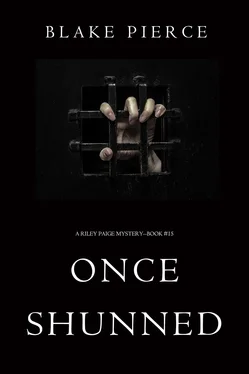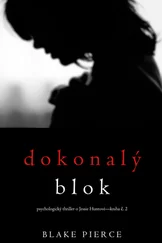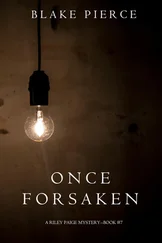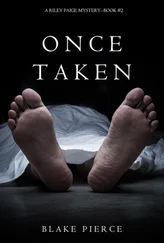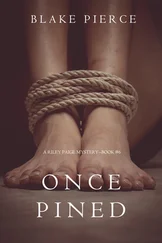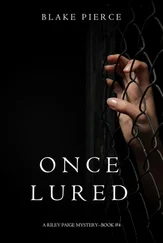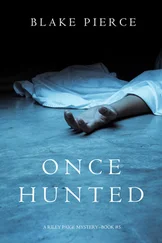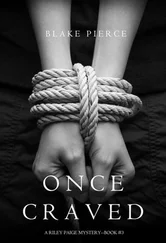Right now she was pleased that Riley had agreed with her about the need to interview Duane Scoville. Jenn felt anxious to make meaningful contributions to solving this case. She regretted some of her own behavior during the previous case she’d worked on with Riley and Bill—the case of the so-called “Carpenter,” who’d killed his victims with a swift hammer blow to the head.
A bitter remark Jenn had made in response to Riley’s criticism kept echoing through her mind …
“I suppose this is where you accuse me of not being objective.”
It had been a cheap shot—especially since Jenn knew perfectly well that Riley had had good reason to doubt her objectivity. As an African-American agent, Jenn had been on the receiving end of some pretty overt racism while they’d been working in Mississippi. She hadn’t taken it well, and she had to admit it had affected her judgment.
She hoped she could make up for all that now.
She hoped she could make up for a lot of things.
She looked forward to a day when, at long last, she could put her troubled past behind her.
As Chief Brennan drove, darker memories began to crowd into Jenn’s mind—the dysfunctional parents who’d abandoned her when she’d been a child, then her years under the care of a brilliant but sinister foster parent who called herself “Aunt Cora.” Aunt Cora had trained Jenn and her other foster children to become master criminals in her own criminal network.
Jenn had been alone among Aunt Cora’s pupils in escaping from her clutches, hoping to make a different and better life for herself. She’d become a decorated cop in Los Angeles, then had made phenomenal scores at the FBI Academy before becoming a full-fledged BAU agent.
Even so, she hadn’t been able shake off Aunt Cora completely. The woman had been in touch with her earlier this year, trying to pull her back into her sphere of influence, even trying to make Jenn beholden to her by helping out on an FBI case.
Jenn hadn’t heard anything from Aunt Cora for a few weeks now. Had her one-time mentor given up on her for good?
Jenn could only dare to hope.
Meanwhile, Jenn’s gratitude toward Riley knew no bounds. Riley was the only person who knew the truth about Jenn’s past. More than that, Riley sympathized. After all, Riley herself had once been entangled with a criminal mastermind, the brilliant escaped convict Shane Hatcher.
Jenn knew more than anybody else did about Riley’s secret, just as Riley knew all about hers. It was one of the reasons Jenn felt such a close bond with her new mentor—a bond based on mutual understanding and respect. Because of that bond, Jenn wanted to live up to Riley’s high expectations of her.
Jenn’s thoughts were interrupted by the sound of Brennan’s voice as he turned a corner.
“We’re almost there.”
Jenn was surprised to see a huge change in the surrounding community. Gone were all the dignified, gleaming white houses with their flawlessly straight picket fences. They passed down a street littered with modest-sized businesses that included vegan restaurants, organic food stores, and a thrift store.
Then they continued into a neighborhood filled with smaller houses, somewhat shabby but nevertheless rather charming. Pedestrians were a varied lot, from young bohemian types of diverse races to old hippie types who looked like they’d lived here since the sixties.
Jenn felt immediately more comfortable here than she had in the homogenized, ultra-white, upper-class area they’d just left. Still, this was a small neighborhood, and Jenn guessed that it was getting rapidly smaller.
Gentrification is closing in, she thought a bit sadly.
Brennan parked in front an old brick apartment building. He led Jenn and her colleagues up to the front door. There, Riley gave Jenn a look that told her she was to take the lead now.
Jenn glanced at Bill, who nodded at her to go ahead.
She gulped with anticipation, then rang the buzzer for Duane Scoville’s apartment.
No one answered at first. Jenn wondered if maybe he wasn’t home. Then she rang again and heard a grumbling voice over the speaker.
“Who is it?”
The voice crackled for only a couple of seconds. But Jenn thought she heard music in the background.
Jenn called back, “We’re from the FBI. We’d like to talk to you.”
“What about?”
Jenn felt a bit taken aback by the question. And this time she was sure she heard music.
She said, “Um … about your ex-wife’s murder.”
“I talked to the cops about that already. I was out of town when it happened.”
There was another snippet of music, and this time it sounded familiar to Jenn—almost eerily so.
Brennan interjected, “This is Police Chief Brennan. I talked with you earlier. The agents would still like to ask a few more questions.”
A silence fell, then the buzzer rang and the door clicked. Jenn opened the door and she and her colleagues walked inside.
She thought …
It doesn’t sound like we’re exactly welcome.
Jenn wondered why not.
She decided she was going to find out.
Jenn followed Chief Brennan into the building and up the stairwell to the second floor. Riley and Bill followed behind as they walked down the hall toward Duane Scoville’s apartment.
Jenn’s ears perked up as she heard the sound wafting from some nearby room.
That music again.
This time she was sure she’d heard it before, but it had been a long time ago, and she wasn’t sure where or when. It was a classical piece—something slow, soft, and incredibly sad.
They arrived at Scoville’s apartment, and Chief Brennan rapped on the door.
A voice called out, “Come in.”
As she and her colleagues walked inside, Jenn was startled by the appearance of the apartment. The place was a mess, all scattered with beer cans and food wrappers.
About ten guitars were in view, some of them on stands, others in open cases, still others lying about in the open. Some were acoustic, some electric. There were also amplifiers, speakers, and miscellaneous electronic equipment scattered about.
Duane Scoville himself sat in a battered beanbag chair. He had long hair and a beard and wore jeans, a tie-dye shirt, a peace symbol on a cord around his neck, and round-framed “granny glasses.”
Jenn had to suppress a giggle. Scoville looked like he was in his twenties, but he was trying his best to look like a sixties-style hippie. The room’s decor included beads, cheap tapestries, faux-Persian throw rugs, lighted candles, and general disorderliness. Some of the posters on the wall were psychedelic images, others promoting rock music groups and performers that had been popular long before Jenn’s time.
There was a strong odor in the air—of incense and …
Something else, Jenn realized.
Duane Scoville sat staring blearily into space as if no one had arrived. He was obviously quite stoned, although Jenn saw no signs of drugs anywhere.
Chief Brennan said to him, “Duane, these are FBI Agents Paige, Jeffreys, and Roston. Like I just said, they’ve got a few more questions for you.”
Duane said nothing, and he didn’t offer his visitors a place to sit in the crowded little room.
Jenn felt perplexed as she remembered how immaculately neat the victim’s little home had been. She could hardly believe Robin Scoville had ever known this man, much less been married to him.
And then there was the music …
Instead of the Doors or Jefferson Airplane or Jimi Hendrix or something else more appropriate to these surroundings, Duane was listening to soft Baroque chamber music with a haunting woodwind solo like a high-pitched, mournful birdsong.
Читать дальше
